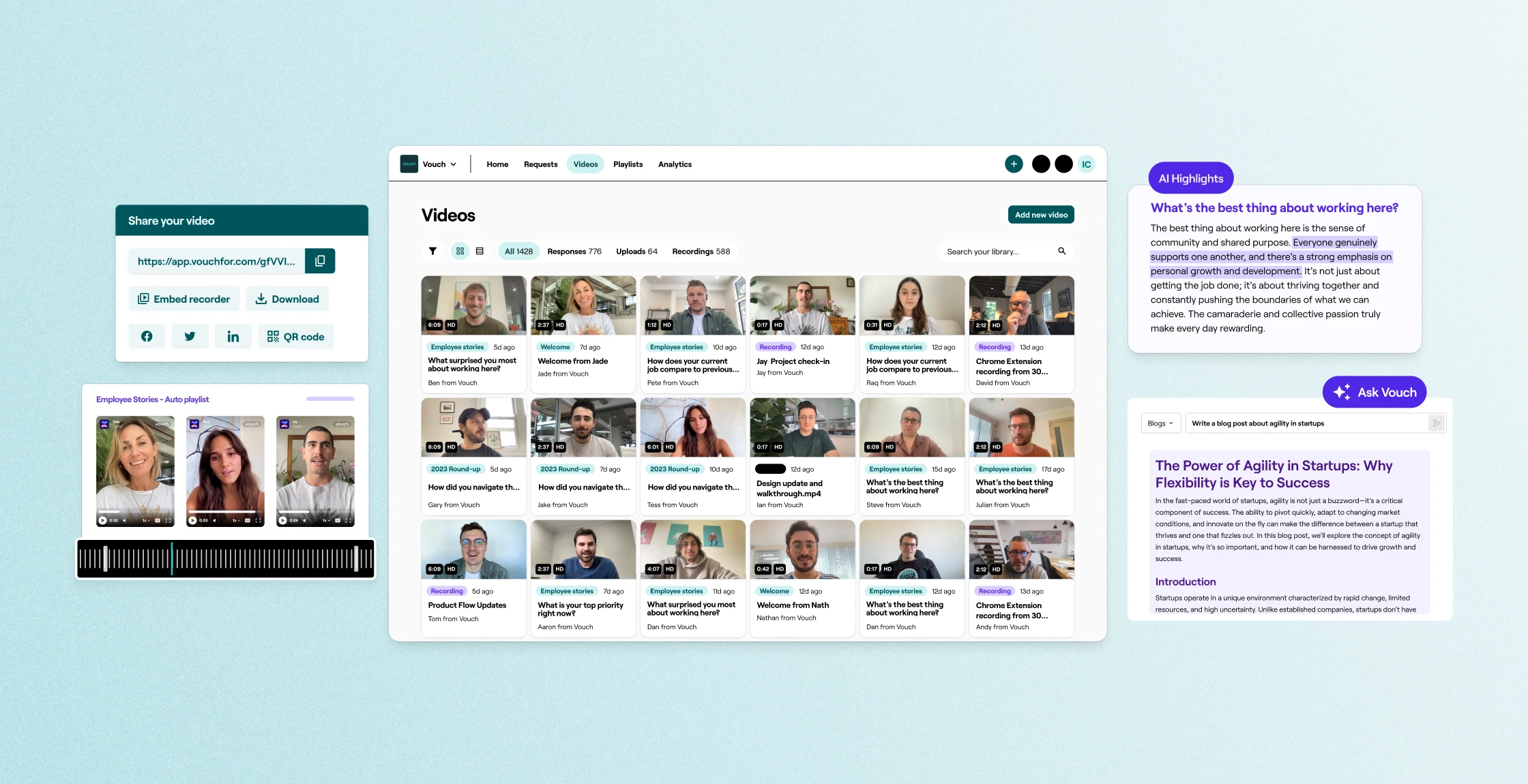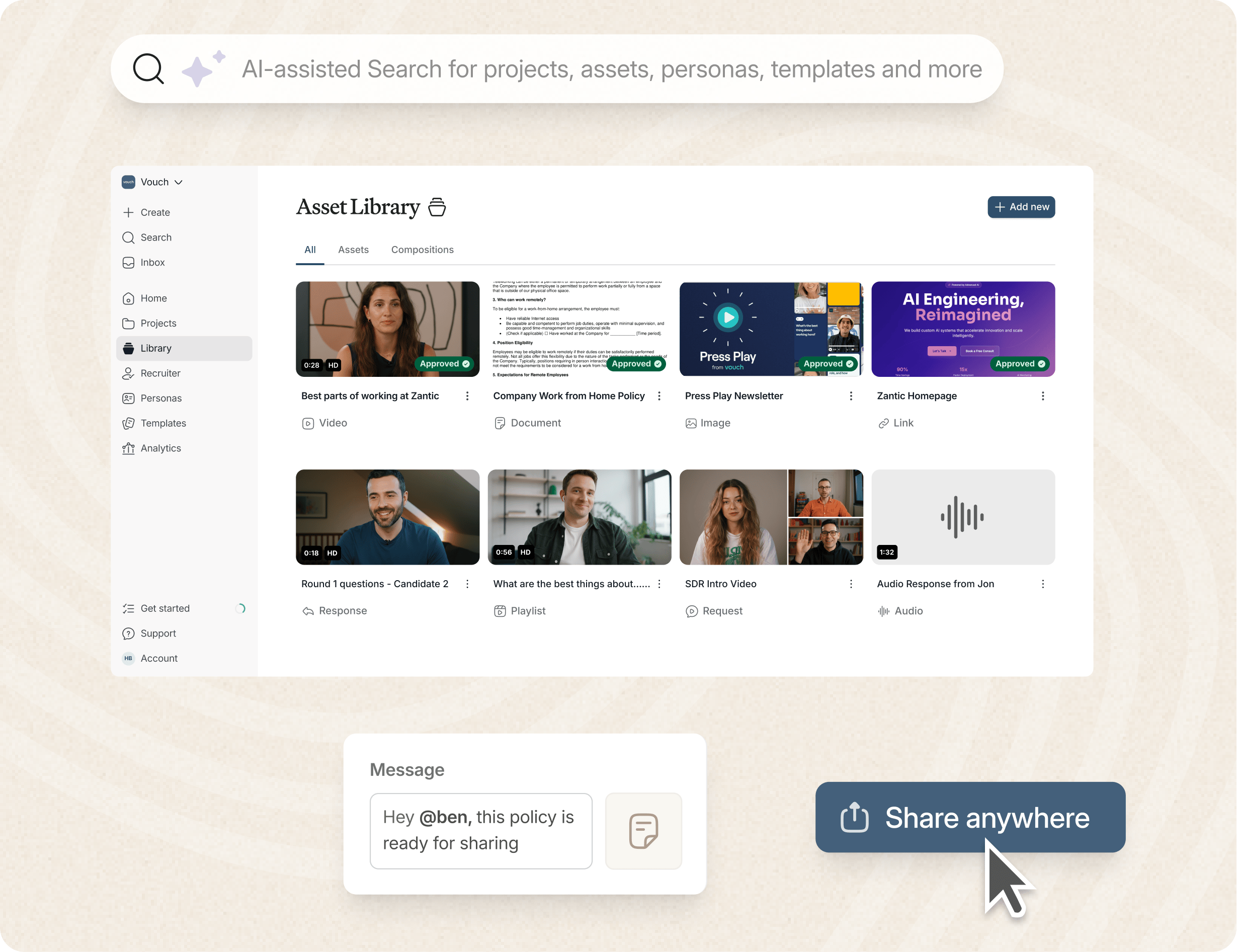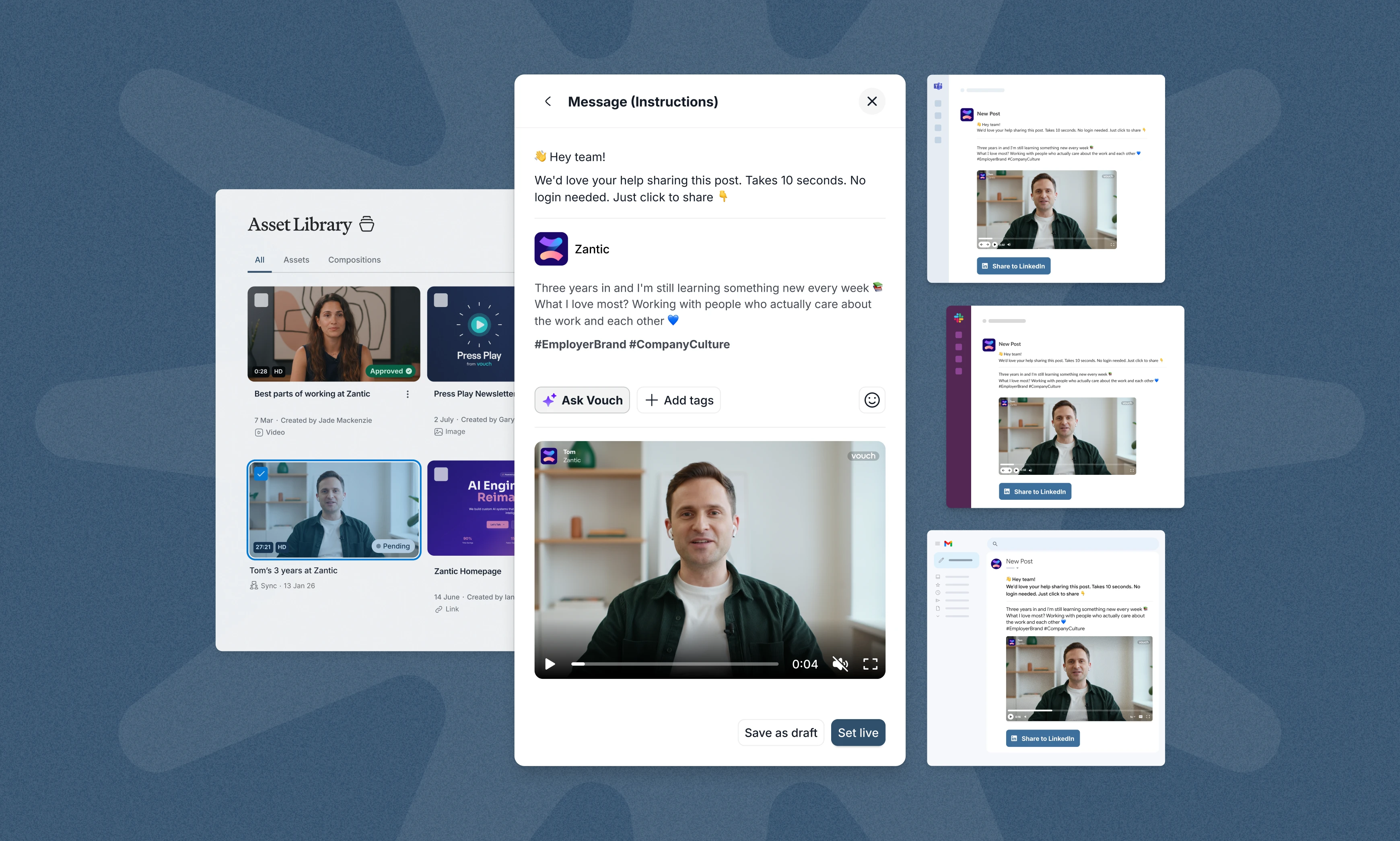
Internal Recruitment vs External Recruitment: Which Hiring Approach Works Best?
When it comes to filling new job openings, many larger organizations are often faced with one major decision: Should you promote from within your current team - or bring in fresh talent?
Both internal and external recruitment have unique benefits and challenges, but the choice between them can significantly impact your company's culture, hiring costs, and even employee retention.
In this article, we'll break down everything you need to know about internal and external recruitment, including 2026 statistics and insights on both methods.
Whether you're a TA or hiring manager looking to optimize your recruitment process - or C Suite researching hiring strategies, this guide will provide the clarity you need.
Let's dive in.
What is Internal Recruitment?
As a quick definition, internal recruitment is when your company fills a role from within your current employees. This can include promoting an employee to a higher-level position or moving someone laterally to a different role within your organization.
There are a few terms used for internal recruitment, including Internal hiring, Internal mobility, Internal promotion and most recently, the gain in popularity and the term "Talent mobility".
What Are The Common Methods of Internal Recruitment?
- Internal job postings and powerful videos to advertise positions on internal bulletin boards or the company's intranet, with video content to really resonate with potential internal candidates who may be from different sectors of your company.
- Employee referral programs that encourage other colleagues who might be interested in the new role.
- Internal promotions, which is the more traditional method of hiring internally based on performance history and company values, but this is not always the case in 2026 and beyond as lots of talent moves sideways within companies.
What is External Recruitment?
External recruitment, on the other hand, involves hiring external candidates — meaning individuals from outside the organization.
This method is often used when a larger company needs specialized skills or wants a fresh perspective, or, of course, if all of your current workforce is in critical positions that can't be changed.
Externternal recruitment can involve internal TA hiring teams or external recruitment agencies. Let's define it a little further:
What Are The Common Methods of External Recruitment?
- Job postings from your internal TA or hiring team on job boards and platforms like LinkedIn or Indeed.
- Partnering with a recruiting firm to find high-quality candidates.
- Leveraging your current internal team's network to find top talent in other companies (passive candidates) who would be willing to come across.
The AI-enabled workspace for talent teams.
- Unified workspace for talent teams
- Accelerate hiring with AI tools
- Auto-generate polished hiring and employer brand content
- Easily repurpose assets across all channel

Pros and Cons: Internal Recruitment vs External Recruitment
Both internal and external recruitment come with distinct advantages and disadvantages.
Here's a closer look:
Internal Recruitment: What Are The Advantages?
- Employee loyalty and morale: Promoting from within shows a clear career path, which can boost employee satisfaction and employee morale.
- Reduced hiring costs: Lower recruitment costs since there's no need for external recruiting or extensive advertising.
- Faster hiring process: Internal hires are familiar with the organizational culture and require less time to adjust.
- Performance history insight: Hiring managers have a deeper understanding of an employee's skills and performance.
Internal Recruitment: What Are The Disadvantages?
- Limited talent pool: Only relying on internal candidates can restrict access to new ideas and innovative ideas.
- Internal conflicts: Competition for promotion competitions may cause tension among employees.
- Skill gaps: Some roles, especially senior positions, may require skills that internal employees lack.
External Recruitment: What Are The Advantages?
- Access to a larger talent pool: Bringing in external applicants provides access to a wider talent pool.
- Diversity of perspectives: External hires bring fresh ideas and can drive innovation.
- Specialized skills: For roles requiring unique expertise, external recruitment can bring in individuals with the right qualifications.
External Recruitment: What Are The Disadvantages?
- Higher recruitment costs: Costs associated with recruitment agencies, job board fees, and external recruitment strategies can add up.
- Longer hiring process: The external recruitment process often requires more steps, like background checks and additional onboarding.
- Higher risk of bad hires: Lack of familiarity with company culture and corporate culture can increase the chances of a disastrous hire.
What Are 5 Key Statistics on Recruitment in 2026?
To make informed hiring decisions, it's essential to consider up-to-date data. Here are some relevant stats for 2026:
- Cost of Hiring: The average cost per hire in the U.S. is now approximately $4,700 (according to SHRM). Internal recruitment typically costs less, as it minimizes advertising and onboarding costs.
- Quality of Hire: Research by LinkedIn shows that internal hires are 25% more likely to perform at or above expectations compared to external hires.
- Time to Fill: According to a report by Glassdoor, internal recruitment takes about 20 days on average, while external recruitment can take up to 49 days.
- Employee Retention: Internal recruits tend to stay 41% longer in their roles compared to external hires, according to a report from Work Institute.
- Diversity in Hiring: Companies that rely solely on internal recruitment may struggle with diversity. A report from McKinsey found that diverse teams are 36% more likely to outperform less diverse teams, underlining the importance of external candidates for bringing in fresh ideas and diverse perspectives.
So, Which Recruitment Strategy Should You Choose?
The best approach depends on your company's needs and long-term goals.
Here are some scenarios to consider:
Opt for Internal Recruitment if:
- You want to boost employee morale and employee engagement.
- You have qualified internal candidates who can fill the role.
- The position requires a deep understanding of the company's organizational culture.
Choose External Recruitment if:
- You're looking for specialized skills that are not available within your current team.
- You want to expand your diversity of perspectives and bring in fresh ideas.
- You need to fill a senior position that requires extensive experience in your industry.
FAQs
What's the main difference between internal and external recruitment?
Internal recruitment fills roles with existing employees, while external recruitment brings in candidates from outside the company.
Is internal recruitment cheaper than external recruitment?
Yes, generally, internal recruitment has lower costs as it reduces advertising and training expenses.
Does external recruitment take longer than internal recruitment?
Typically, yes. External recruitment often includes more steps, such as sourcing, interviewing, and background checks.
How does internal recruitment affect employee morale?
Promoting internally can boost morale by showing employees there are career growth opportunities within the company.
Is external recruitment better for diversity?
Yes, external recruitment can bring in a more diverse pool of candidates, which enhances company culture and innovation.
Are internal hires more successful than external hires?
Studies indicate that internal hires are often more successful as they are already familiar with company values and expectations.
Can internal and external recruitment be used together?
Absolutely! Many companies use a blend of both to get the best of both worlds in terms of skills and internal knowledge.
In the end, balancing internal and external recruitment can help your company build a strong team with both loyalty and fresh perspectives. By strategically choosing the right recruitment methods, you'll optimize your hiring process and enhance both employee retention and company culture.
Vouch Improves Your Internal And External Recruitment!
Loved by companies like Canva, Nike, Cisco, HubSpot, Amazon, and more, tools like Vouch make leveraging video in your business and recruitment remarkably easy.
Be sure to book a Vouch demo today and chat with a video content expert.
You might also like

Elevate Your Brand Today With Vouch
Discover how Vouch can accelerate talent acquisition while helping you stay on-brand.





